Featured Blog
“I can walk again”: hope for amputees in Gaza
As of April 2025, the UN reports that 4,500 people have lost limbs due to the ongoing conflict, including more than 800 children. Many have been left to suffer with limited or no access to medical care and support.

Specialists assist a man and a young boy as they relearn how to walk with their artificial legs. Photo: Caritas Jerusalem
View Filter
Filter by
Clear Filters
Filter by
Viewing 1-20 of 323
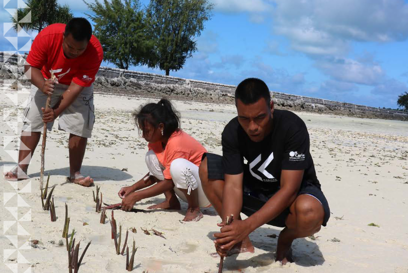
Read about the latest report from Caritas Australia on climate change and debit in the Pacific.
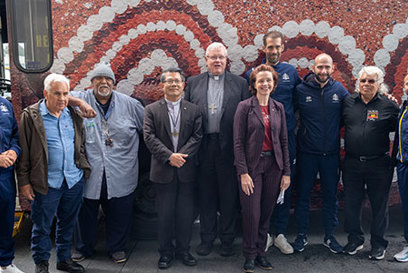
Vatican Cycling Team and Kinchela Boys Home survivors with Archbishop Charles Balvo, Bishop Vincent Long and Caritas Australia CEO, Kirsty Robertson.
The first ever Vatican World Cycling Team joined Caritas Australia last week to learn more about truth-telling and reconciliation from Kinchela Boys Home survivors.

An aerial view of the Machhapuchhre Agro-Eco Tourism Learning Center and Homestay. Photo: Richard Wainwright/Caritas Australia
Nestled at the base of Annapurna Himalayan range in Nepal is a homestay and agro-eco tourism centre that is helping local communities to share their culture with the rest of the world.
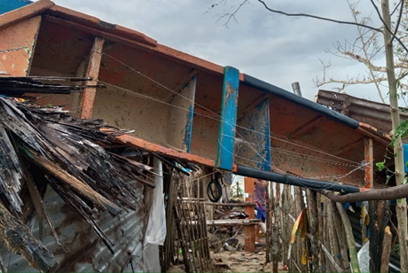
Destruction of Typhoon Noru. Photo by: Prelature of Infanta
A super typhoon has hit the north-western Philippines, forcing thousands out of their homes and leaving many towns underwater.
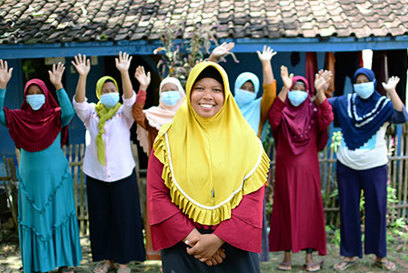
Tarsini with her Saving and Loans Group near her home. Photo: Laz Harfa.
21 SEP 22
Thanks to your ongoing support, we are continuing our mission of eliminating discrimination, working towards gender equality and advancing women’s rights, along with promoting respect for all people – irrespective of their age, culture and position in life.
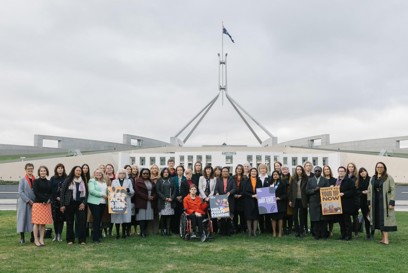
Micah Women's Delegation at Parliament House advocating for food prevention package in the worst affected hunger hotspots. Photo: Micah Australia
As the representative of Caritas Australia in Adelaide, Tracey Tessitore writes about her experience joining forty women advocating together on the Help Fight Famine Campaign at Parliament House on 7 September.
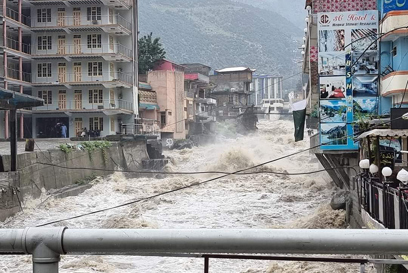
Flash flooding have devastated the lives of millions across Pakistan. Photo: Caritas Pakistan
Devastating floods in Pakistan have left a trail of destruction across the country, claiming the lives of more than 1,100 people.

Many families in Moldova, like Olga's, have welcomed Ukrainian refugees into their homes. Photo: Caritas Moldova.
Six months on from the Russian invasion of Ukraine, more than 550,000 people have crossed the border into Moldova, the majority of them women, children and the elderly.

Workplace giving image.
26 AUG 22
Now supporters can make regular donations through pre-tax pay.
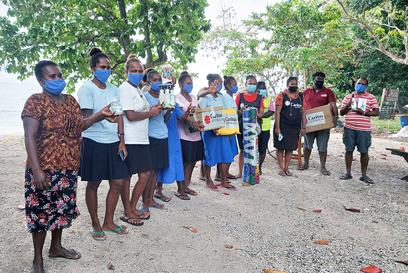
Students from the Solomon Islands receive their School Care Kits. Photo: Caritas Australia Solomon Islands
Students in the Solomon Islands have returned to school after a year of disruptions caused by COVID-19 outbreaks and lockdowns.

Mali and her family outside their home in Ethiopia.
Africa is on the brink of a devastating famine that threatens to leave millions at risk of extreme hunger
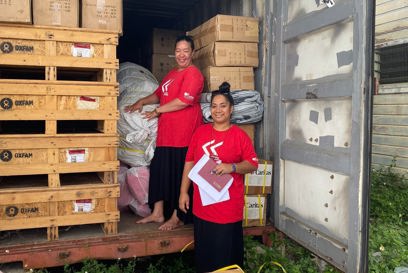
This World Humanitarian Day, we honour #OurLocalHeroes, celebrating the work of our dedicated partners who are tackling ongoing crises across this world during 2022.
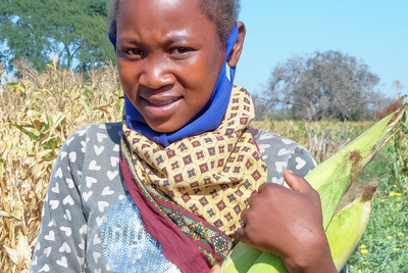
Anatercia carries corn next to her fields in Mozambique. Photo credit: Emidio Josine/Caritas Australia.
August 13 marks International Youth Day, a day raising awareness of the cultural and economic issues that impact youth worldwide.

CEO Kirsty Robertson shares the story of her trip to Ethiopia, where she met families severely impacted by the drought and hunger crisis.

Kirsty Robertson, CEO at Caritas Australia, during her visit to Ethiopia. Photo: Caritas Australia.
Read about Kirsty Robertson's, Chief Executive Officer at Caritas Australia, visit to Ethiopia and her recollections on the impact of the Africa Food Crisis on the people.

Giuseppe celebrating his dog's birthday. Photo: Supplied.
A bequest to Caritas Australia does not only continue your legacy but can support the work that we do with vulnerable communities across the world and in Australia.

Dry lands in southern Ethiopia, with malnourished cattle on a sandy track. Photo credit Zacharius Abubeker via Caritas Australia
There is so much information about the world food crisis right now it might be hard to know where to start. Here's the first five things you should know when thinking about the world food crisis and how it affects us all.
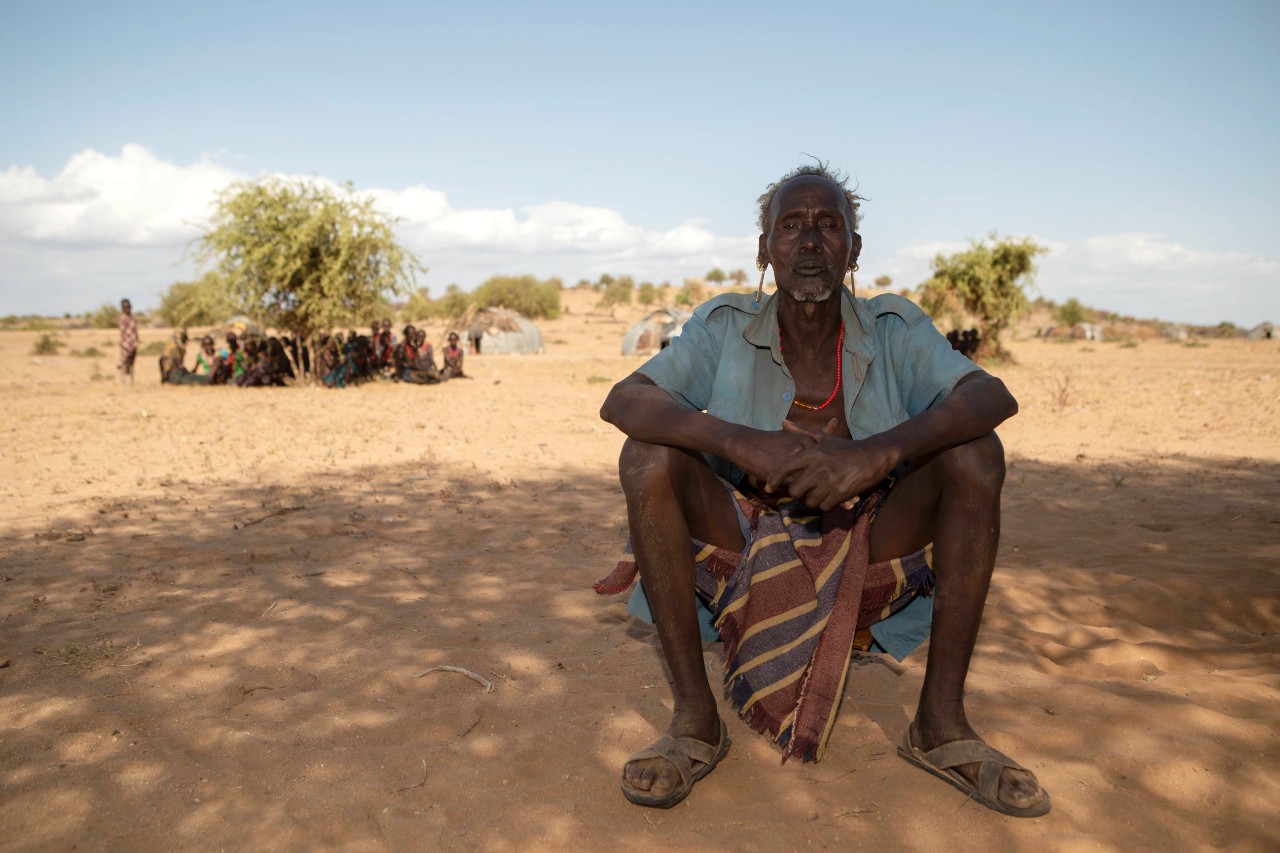
Bute, the elder of a small village in southwestern Ethiopia. Photo: Zacharias Abubeker/Caritas Australia.
Right now, 49 million people are facing famine. Here in Australia, we’ve seen our own food prices skyrocket due to the ongoing impact of the pandemic, climate disasters and most recently, the conflict in Ukraine.

Tului and her family with their installed water tank. Credit: Caritas Samoa
With funding from Caritas Australia, Caritas Samoa successfully installed water tanks for 32 families living with unreliable water access in 17 Samoan villages.

Caritas Australia CEO Kirsty Robertson visits an IDP camp in northern Ethiopia. Photo: Richard Landels/Caritas Australia.
Caritas Australia CEO Kirsty Robertson and Advancement Director Richard Landels are in Ethiopia to meet communities affected by the food crisis and displaced people who have fled conflict zones.
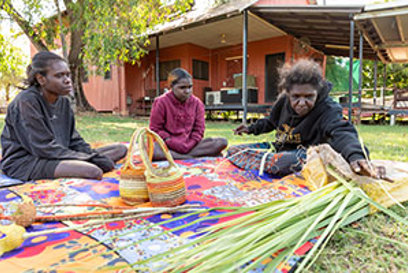
Janice and her daughters weaving pandanus leaves collected from a forest near Djilpin Arts. Photo: Richard Wainwright/Caritas Australia.
04 JUL 22
This week, we celebrate National Aborigines and Islanders Day Observance Committee (NAIDOC) Week, which provides an opportunity for all Australians to learn about Indigenous cultures and our shared histories, and to participate in celebrating one of the oldest cultures on Earth.
What can we help you with?
Speak with us
Call our Supporter Services team for assistance. Our lines are open Mon-Fri 9am-5pm AEST.
1800 024 413Contact Caritas Australia
Send us an enquiry and we’ll be in touch. We’d love to hear from you!
Contact UsSee our FAQs
Visit our FAQ page to learn more about the work of Caritas Australia and find answers to our most frequently asked questions.
FAQsDonate now to provide support where it's most needed today
Donate Now











